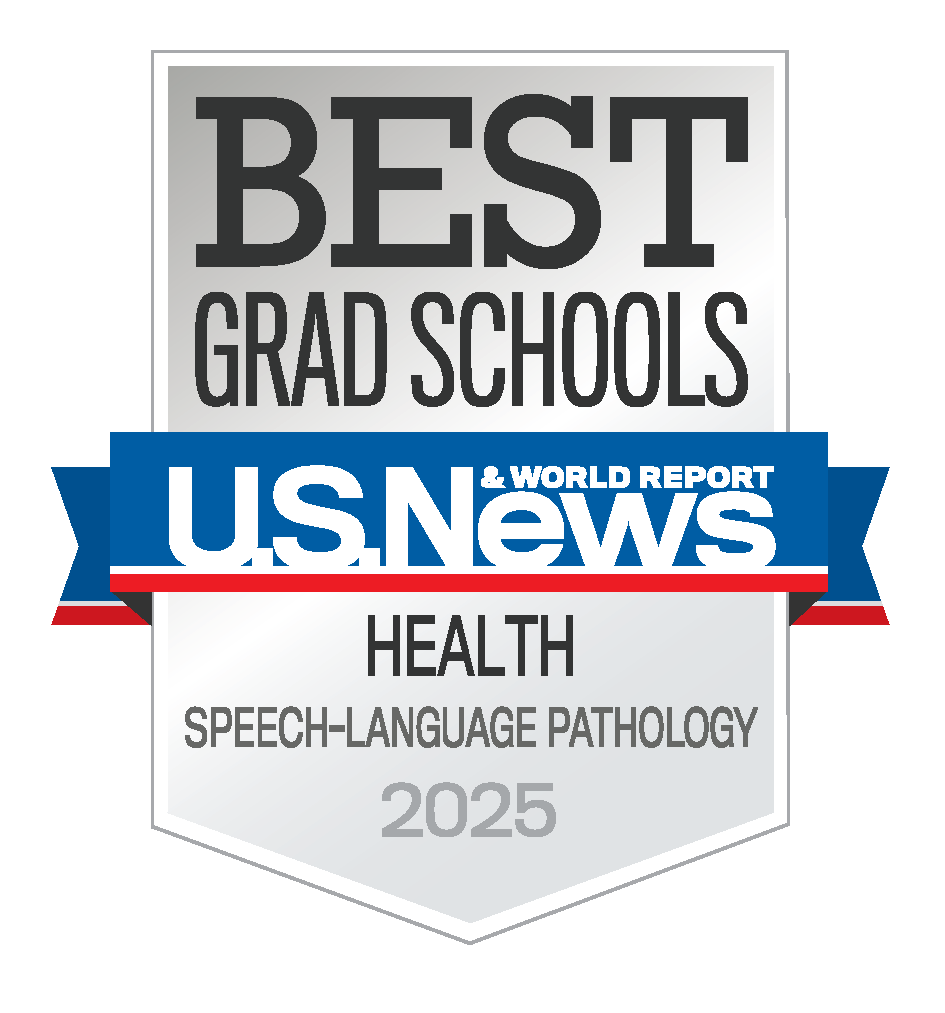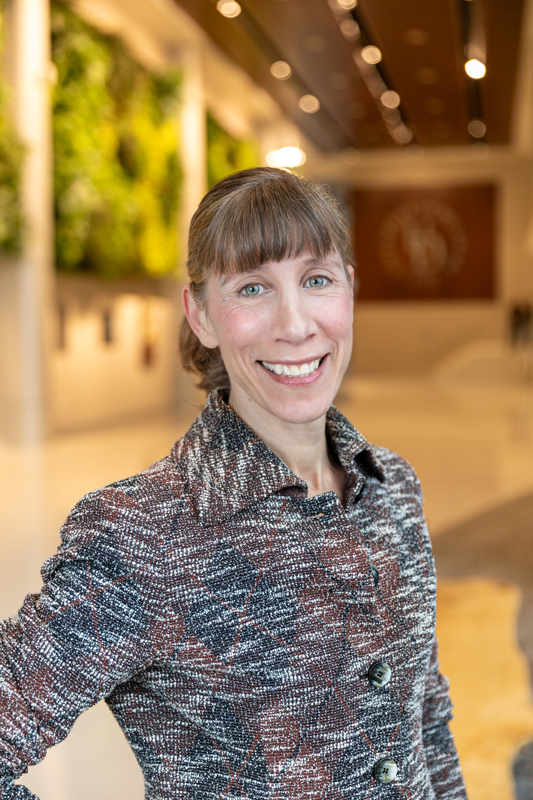
About the department


“A communication disorder is an impairment in the ability to receive, send, process, and comprehend concepts or verbal, nonverbal and graphic symbol systems. A communication disorder may be evident in the processes of hearing, language, and/or speech. A communication disorder may range in severity from mild to profound. It may be developmental or acquired. Individuals may demonstrate one or any combination of communication disorders. A communication disorder may result in a primary disability or it may be secondary to other disabilities.”
American Speech-Language-Hearing Association
Welcome to the Communication Sciences & Disorders Department at the University of Delaware! The department offers a Ph.D. in Communication Sciences and Disorders and an M.A. in Speech-Language Pathology with an option for an Extended Track which includes the speech-language course prerequisites required for M.A. program admission.
Vision
To foster well-being, enhance quality of life, and reduce health disparities through our leadership in transformative science, learning, and practice in the field of communication sciences and disorders.
Tripartite Mission
Research
- To transform basic, translational, and clinical research in language, cognitive, speech, and swallowing processes, disorders, and delays using methods which embrace a holistic approach to prevention, diagnosis, and treatment strategies
- To conduct innovative, collaborative, and community-oriented research that intentionally focuses on equity and includes traditionally excluded groups
Teaching
- To educate and mentor students, trainees, clinicians, and researchers to advance the science and clinical care of language, speech, cognitive, and swallowing disorders in diverse communities.
Engagement
- To provide equitable, excellent, cutting-edge, person-centered care in order to improve quality of life for individuals with communication differences/disorders and their communities;
- To engage, educate, and advocate for underserved communities regarding communication differences/disorders, and scientific advances in the field, and
- To create, support, and advocate for communities of research, education, and care

Welcome to the Department of Communication Sciences and Disorders (CSCD) at the University of Delaware!
Here in CSCD we are committed to educating and mentoring students, trainees, clinicians, and researchers to advance the science and clinical care of communication disorders in diverse communities with the aim of filling the great need to specialists in these areas in the state and beyond. We also are committed to transforming science, learning, and practice in the field of communication sciences and disorders through partnerships, innovative research, and responsive education and care; to foster well-being, enhance quality of life, and reduce health disparities.
CSCD offers four pathways to an advanced degree in an inclusive and nurturing atmosphere. Specifically, CSCD has two pathways to achieve a Master’s degree in Speech-Language pathology –one for people with a bachelor’s degree from any major and one for people with a bachelor’s degree within the field. We also offer two pathways to a PhD --one in CSCD and the other collaboratively with the Interdisciplinary neuroscience graduate program. In all of our programs we encourage our students to engage in active, hands-on, interdisciplinary, and rich learning experiences that enhance and support their classroom and clinical experiences. Upon graduation our students are able to reach their career goals and become leaders within their field.
We also host a state-of-the art clinic where innovation and research support clinical practice which is equitable, excellent, cutting-edge, person-centered and aims to improve quality of life for individuals with communication differences/disorders and their communities.
If you would like any additional information please reach out to me directly at aseidl@udel.edu. I am always happy to discuss our programs and the field of communication sciences and disorders. In the meantime, I invite you to explore our website to learn more about our exciting research, clinical work, and efforts to prepare and support the next generation of scientists and clinicians to treat patients in our ever-changing world.
Sincerely,
Amanda Seidl, Ph.D.
